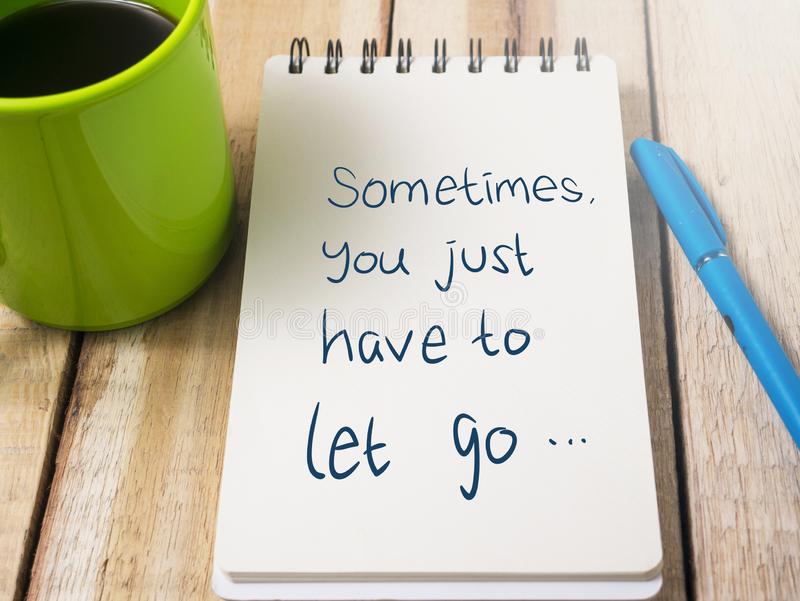Today’s world is changing at an incredible rate, states of souls, ties, and feelings are made and undone without warning. These cases as well as relational breaks, being commonplace, it is crucial to learn to let go of someone, in everyday life, in our relationships with others whether they are in love or platonic. We ourselves, at our level, can also be the source of discomfort in our relationships with people who are dear to us or very close to us, because we want to have too much control over them and we find it difficult to let go of someone you love. And this is unhealthy and toxic!
So if you really want to change and stop controlling everything, find out what is the path or ways to go.
What is letting go?
What is commonly called “letting go” is acceptance and adaptation to changes, the ability to see reality as it is without being dominated by an imaginary reality where everything would happen exactly. as we had expected, imagined.
It is also a roundabout way to drive away your fears and anxieties. Because by “controlling”, you believe to protect yourself from what will happen and thus not to suffer nor to be exposed. It’s time to let go of someone…
You can let go of love, at work, with family, with friends, in front of a particular person or even to lose weight. To let go is to distance yourself from what hurts us, torments us, prevents us from moving forward.
But let’s be clear: letting go does not mean sinking into passivity, on the contrary. Letting go is to see the problems that arise for us as they are, it is to take stock of what we will not be able to modify and which must therefore be accepted, and what it is about. possible to act. To let go of someone is to show adaptability, while to persist in wanting to conform reality to our ideas, our beliefs, our desires, is most often to get stuck in dead ends.
Here are 5 solutions to adopt on a daily basis to let go of someone you love.
1. Identify the source of your anxieties in order to let go
Who are your stressors? What causes you to not be able to adapt to it? Most often, at the start, there are different beliefs, inner speeches, judgments about what you are going through, about what is happening. These cognitions induce emotions: anxiety, despondency, anger, and this leads you to words or actions that only add fuel to the fire. New judgments are then set in motion, which give rise to painful emotions and inappropriate behavior. You are locked in a vicious circle.
It is important that you can list the starting points, i.e. your stressors. But also that you can spot the vicious circles in which you quickly find yourself trapped. Write down on a piece of paper your stressors, then your inner thoughts and dialogues, then your emotions, then your actions and what follows. You will have already taken a big step…
2. Accept your suffering your stress response
No need to struggle ineffectively. Your discomfort does not deserve any guilt. Observe the thoughts that overwhelm you without judging them. Are you on the verge of tears? Do you feel your throat tighten? Don’t resist. Let yourself go . No one other than you can grasp what you are going through. So, fully experience the emotions you are feeling.
3. Let go and breathe
Breathing is a great tool for letting go. Have you ever noticed how a deep breath followed by a big sigh can give you relief when a stressful situation is over? Practice abdominal (or ventral) breathing . It frees the diaphragm and brings us an immediate feeling of calm and well-being.
4. Stop controlling everything and get rid of your stress
What if you stop wanting to control everything? Certainly, painful events stand in your way. But is more control aimed at ignoring what is happening and trying to go back to the previous situation the right solution? There is no turning back, you have to adapt to the change. Whether it is the bereavement of a loved one, a dismissal, a family conflict or a disappointment in love, what happened has happened. Accept it and draw the consequences so that you can continue on your way.
5. Take action to let go of someone
Do not let yourself be overwhelmed by the tensions that paralyze you. Take stock of yourself and set yourself reachable and realistic goals. Get rid of your beliefs: “I suck, I will never succeed, I absolutely have to be up to the task, everything must be perfect…”. No need to play the hero. You just have to accept your limits and figure out what you can do. Trust yourself, turn your weaknesses into strengths, don’t refuse failure and instead draw consequences, give yourself the right to doubt or make mistakes. In short, act knowingly without deluding yourself or underestimating yourself.
More articles:



